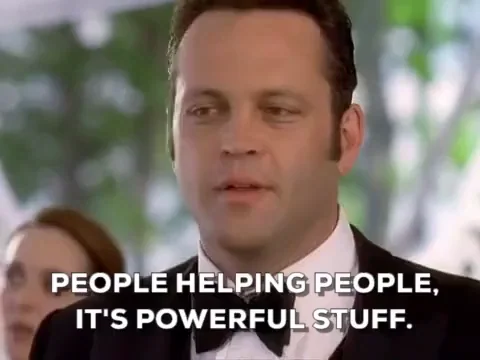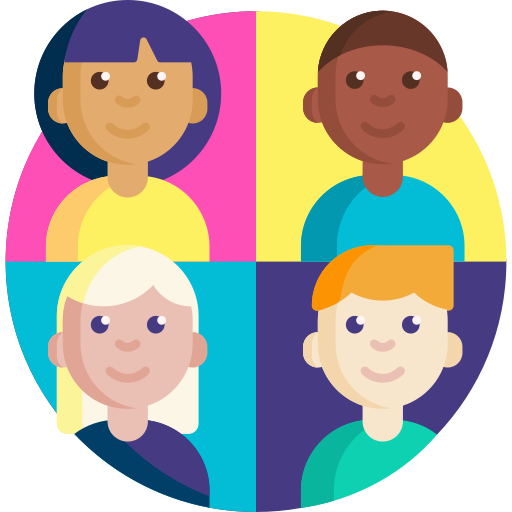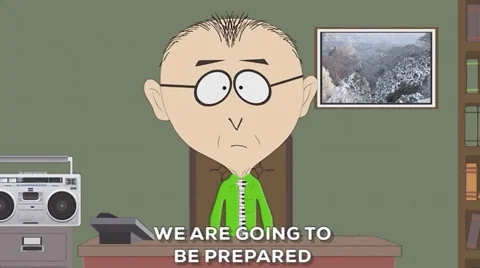Are you passionate about helping people?
Do you feel strongly about human rights and advocating for others?
Do you want to make a difference in the world?

If you answered "Yes", then consider doing a degree in social work!
What is social work as a career choice?
Social work is a profession where trained professionals called social workers work with people, families, groups, and communities to improve everyone's health and well-being.

What do social workers do?
Empower people who experience discrimination, oppression, abuse, poverty, inadequate housing, unemployment, etc.
Provide people with the tools, resources, and strategies to achieve mental, physical, emotional, and spiritual well-being.
What are some roles and responsibilities of social workers?

Planning and running social service programs

Providing mental health support (clinical social worker)

Working with diverse people, including families, community groups, etc.

Advocating for people's rights

Education and policy development

Recording and keeping client information private

Making referrals to other professionals who might be better suited to meet the clients’ needs — for example, referring clients to another mental health professional (psychiatrist, occupational therapist, psychotherapist, crisis intervention specialist, etc.)
What kinds of careers can a Bachelor of Social Work (BSW) degree offer?
Leilah Claire offers some examples of careers in the video below:
Career options after graduation include:
Group therapist
Child protective services worker
Newcomer support counsellor
Disability counsellor
School social worker
Family mediator
Addictions and recovery counsellor
Hospital or hospice social worker
Probation officer for released prisoners
Case manager (helping clients access support services)

Is it worth doing in a Master of Social Work (MSW) degree, after completing a Bachelor of Social Work (BSW) degree?
Michelle Bruxer, the founder of MSW Helper, says that it's definitely worth it in the video below:
Quiz
In high school, which courses would best prepare you for a social work degree program?
Why study social work?
 Photo by Hannah Busing on Unsplash
Photo by Hannah Busing on UnsplashYou can make a positive and profound impact on others.
You'll gain more understanding of social issues and the people who experience them.
You'll hopefully learn more about yourself, while learning about others.

There are many job openings and career pathways.
You'll gain many skills that you can use in different professions, such as communication, teamwork, critical thinking, problem-solving, and many others.
With a social work degree, you can apply for a license to practice social work.
What will you learn in a social work program?

Knowledge, skills, and techniques that social workers use every day, such as: active listening, research, critical thinking, problem-solving, reflective thinking, etc.

How to be successful in your roles as a social worker, such as: writing good case notes, organizing your files properly, understanding privacy laws.

How to practice and apply what you learned from your courses in a practicum or work placement.

How to support and advocate for vulnerable and diverse people within their communities.

How to build your network of support, and find the resources you need as a social worker, such as community services, health care services, and social programs.
What are your study options?
Social work is a very broad field. Social workers (licensed and unlicensed) work in many different places depending on the type of work that they do, either in clinical or non-clinical settings.
 Photo by Ben White on Unsplash
Photo by Ben White on UnsplashBefore selecting a social work program, ask yourself the following questions:
What are my future career goals in the field of social work?
Which specific work settings (either clinical or non-clinical) do I wish to work in?
What types of program delivery options work best for me, and my current situation?
Program delivery options

Many post-secondary schools offer social work programs as full-time and part-time studies.
Some programs may also allow you the option of switching from full-time to part-time, or vice-versa, as needed.

You can take courses on campus (in-person) or online (distance education), or a combination of both (hybrid or blended learning).
Some post-secondary schools offer social work programs as distance education only (fully online), or in-person only (on-campus).
Scenario: Rehana's Decision
 Photo by Lisa Marie Theck on Unsplash
Photo by Lisa Marie Theck on UnsplashMeet Rehana.
She enjoys volunteering as an Emotional Chat (or Certified Listener) Volunteer, and she is interested in becoming a social worker.
Rehana is concerned that she doesn’t have enough experience to apply for a social work degree program to support her career goal of doing social work in school settings.
Quiz
What can Rehana do to gain experience in a school setting before applying to social work programs?
What else can you do to prepare for a social work degree program?

Volunteer in schools, non-profit organizations, community centers, or clinics to help you understand and to narrow down your interests for social work.
Research various post-secondary institutions that offer social work programs in your area of interest.
Review the pre-requisite courses and experiences required for your post-secondary application carefully.
How can you be successful in your degree program?

Be curious: Learn about the people you interact with, as well as, the different workplaces or settings in which social workers work.

Keep a journal: Reflect on your actions and your interactions with others, often, so that you can better understand who you are in relation to others. Also, write down self-care tips, resources, and strategies you can use to help others.

Learn from your mistakes: Trial and error are important parts of learning. If you make a mistake, take the time to figure out what went wrong, and correct it for next time.

Be open-minded to feedback: Use the feedback that you receive from others to help yourself learn how to manage your emotions, build your confidence, and strengthen your support network.

Practice self-care: Take breaks from social work activities by doing things that bring you joy or help you to relax from stress, such as: going for relaxing walks, reading, talking to a friend, having a hobby, doing sports, etc.
Take Action

Your feedback matters to us.
This Byte helped me better understand the topic.
